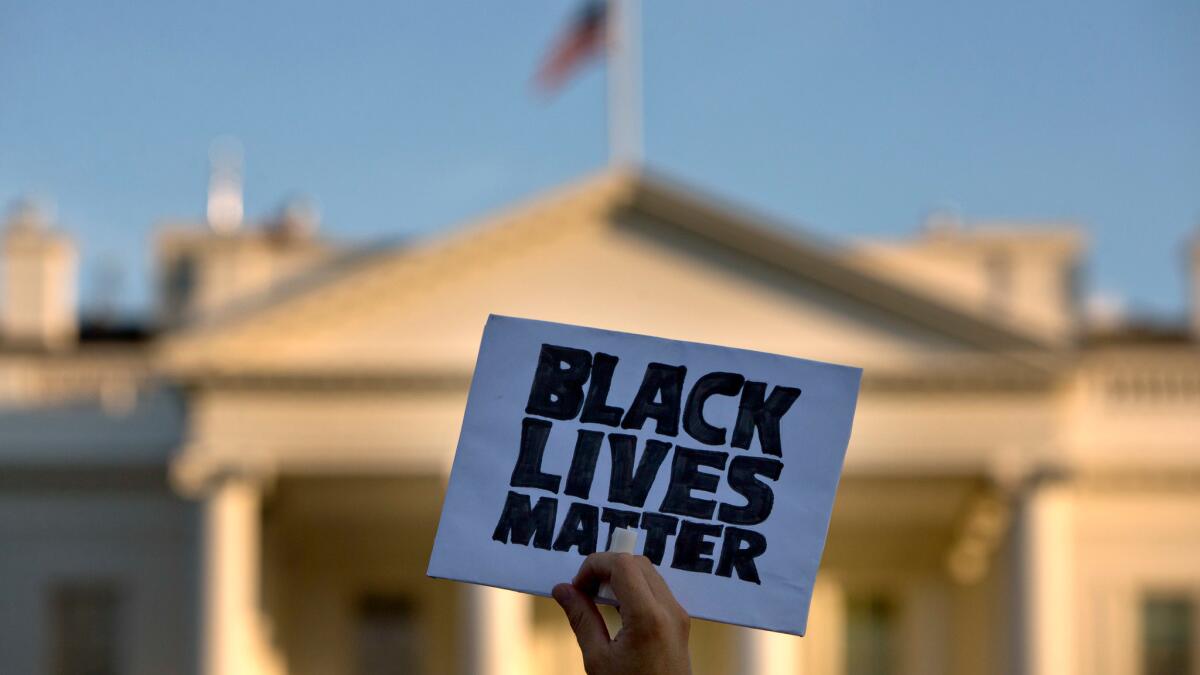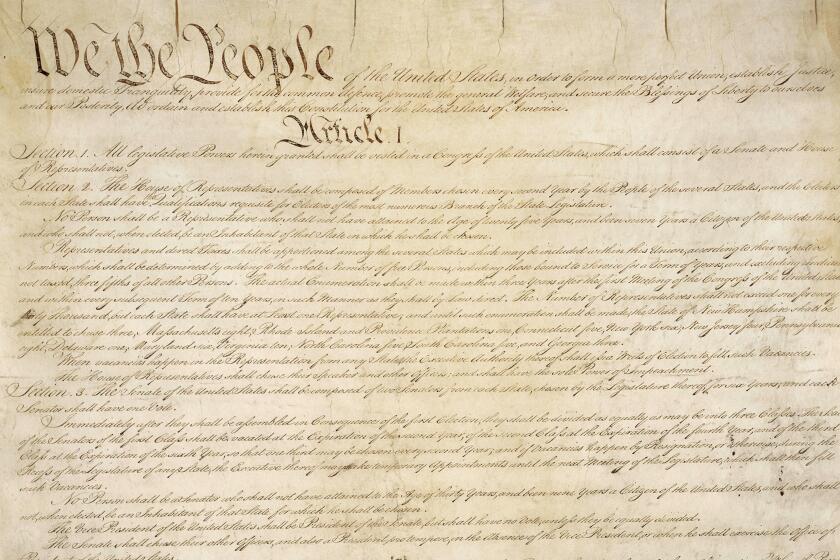Op-Ed: Have Jews abandoned their commitment to social justice?

A coalition of groups active in the Black Lives Matter movement recently published a platform filled with demands. Most were important, like an end to mass incarceration. A few were silly, like low-interest loans to promote food co-ops. And one included a passage seemingly designed to enrage Jews. By way of discussing foreign aid, it claims that Israel is “complicit in the genocide taking place against the Palestinian people.”
However badly Israel treats Palestinians, it has never committed genocide. Former Harvard Law professor Alan Dershowitz wrote in The Boston Globe that this calumny “can be explained in no other way than blatant hatred of Jews and their state.” I don’t quite agree. For many, hyperbole about Israel is less about heartfelt belief than simply following the crowd, and hating on Israel is chic right now.
Already, however, some Jews I know are using that anti-Semitic paragraph to justify a blanket rejection of the issues that matter to African Americans. “Why should we care about them when they don’t care about us?” they ask. These voices pop up mainly on Facebook and in private emails, and they are often couched as rejections only of Black Lives Matter, but without any real interest in alternative organizations.
However phrased, this is a troubling line of thought, for several reasons. First, no platform can speak for an entire movement. Second, while political alliances may be built on superficial quid pro quos, moral reasoning is not. We are obliged to care about justice for all groups, even if some leader of some group has insulted us. (For that matter, we should care about entities that cannot reciprocate at all: the environment, children, animals.)
But the major issue I see is that many Jews who will use this platform as an excuse to reject Black Lives Matter aren’t much interested in African American issues, anyway. Despite our history of social action—including vocal participation in the 1960s civil rights movement—Jews have become increasingly detached from the needs of oppressed people, of all races.
It’s not just that there’s no notable rabbi or Jewish theologian identified with social justice, as Abraham Joshua Heschel was during the Civil Rights era. Nor is the problem simply that many Jewish leaders interested in social justice, like Bernie Sanders, are fairly distant from their religious roots. This isn’t a problem that could be solved by more visible spokespeople—it’s a problem in all of us.
For most of Jewish history, we were relatively poor. But in the United States today, only ethnic Indians rival Jews for household income or education levels. With rising affluence, Jews left urban centers, where they knew people of many ethnicities, for suburbs. Our synagogues followed, and every major American city has a synagogue — often many synagogues — that abandoned an old, downtown building for a new suburban campus.
We worry about the safety of Israel, and Jews in anti-Semitic Europe, but have basically given up creating structural change in America.
Meanwhile, we send our children to private schools in large numbers. Especially the very religious: Orthodox Jews, eager to pass on religious knowledge, almost never send their children to public schools, where they would meet members of other ethnic groups.
As a result, although Jews retain a theoretical cultural and religious commitment to helping those less fortunate, we are less likely than ever to know the people who need help. And given our standards of living, we are unlikely to comprehend, viscerally, the material desperation that many of our fellow Americans feel. We may hear occasional sermons about why black lives matter, but we’re unlikely to live among black people, work with black people, or send our children to school with black people.
Solidarity thus becomes an impossibility, especially when there is very little moral ambition, and almost no prophetic vision, among American Jews today.
When I think about religious groups that offer genuine solidarity to other communities, I think of Amistad Catholic Worker, a community in a poor part of New Haven, Conn., my hometown. They eat and pray together and generally try “to blur the distinction between the people who are serving and those being served,” as they put it. They also participate in antiwar protests and boycotts of businesses that mistreat their workers.
Or I think of the Simple Way in Philadelphia, a Christian intentional community that plants gardens and feeds the hungry. Like Amistad Catholic Worker, they live amongst the people they are trying to help.
Are there Jewish equivalents? Some. There is Beth Am, a synagogue in Baltimore’s Reservoir Hill that’s forging genuine relationships with African American neighbors. There are organizations like Bend the Arc, which works for voting rights and economic justice, and the Orthodox group Uri L’Tzedek. Numerous rabbis urge their congregants to do more, care more, and sacrifice more.
But in general, we write checks from our affluent enclaves, vote Democratic, and call it a day. We worry about the safety of Israel, and Jews in anti-Semitic Europe, but have basically given up creating structural change in America. That doesn’t excuse ugly anti-Semitism in Black Lives Matter, but it makes us poor messengers for a better way.
Mark Oppenheimer is filling in for Doyle McManus. He is a contributing writer to Opinion.
Follow the Opinion section on Twitter @latimesopinion or Facebook
More to Read
A cure for the common opinion
Get thought-provoking perspectives with our weekly newsletter.
You may occasionally receive promotional content from the Los Angeles Times.






